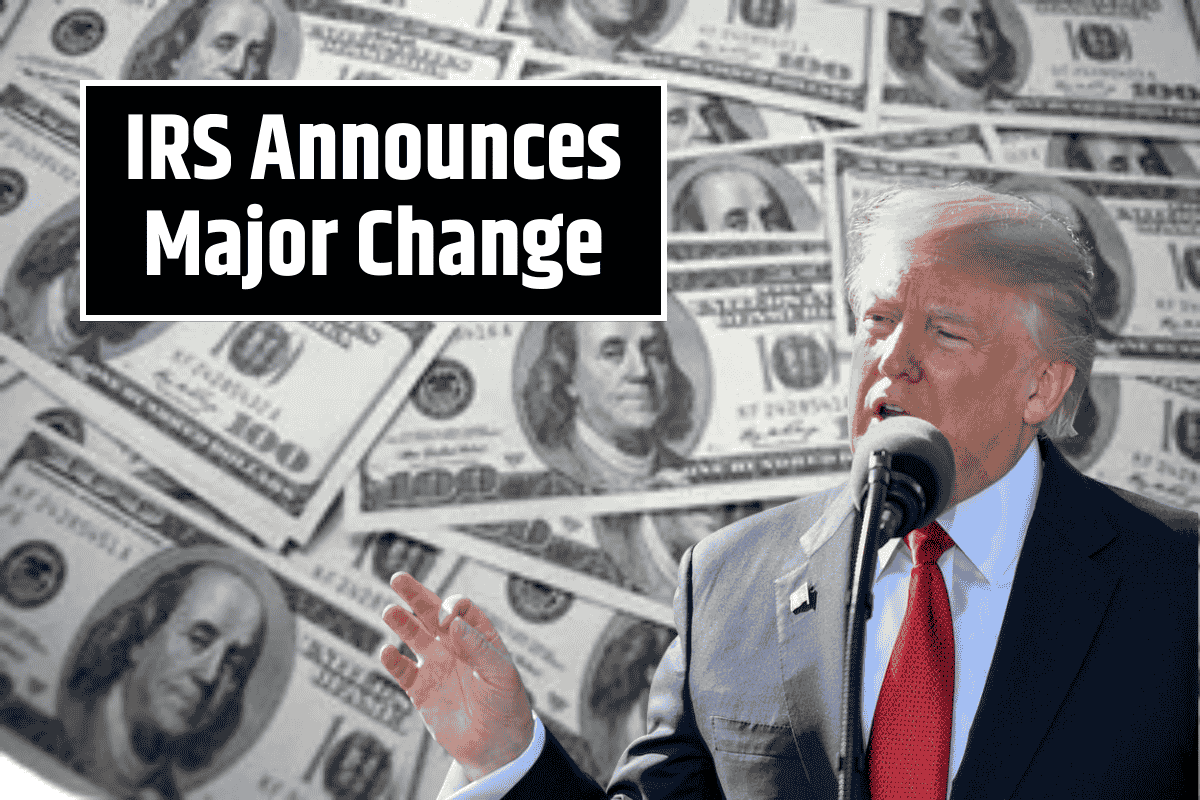The IRS has made a groundbreaking move that could transform how tax enforcement works in the United States. Backed by the Inflation Reduction Act, the IRS is focusing on increasing audits for high-income earners and large corporations while also improving services for everyday workers.
This shift aims to close the tax gap, modernize the agency’s operations, and make the tax system fairer. But what does this mean for the average taxpayer, and how will it impact you moving forward?
Key Changes in IRS Strategy
The IRS has outlined several key initiatives in its new strategy, which focus on increasing audits of wealthy individuals, large corporations, and complex partnerships, while improving customer service for everyday taxpayers.
| Key Initiative | Impact | Who It Affects |
|---|---|---|
| Increased Focus on High-Income Audits | Greater scrutiny on wealthy individuals and corporations | High-income earners, large corporations, complex partnerships |
| Expansion of Large Corporate Compliance Program | Data-driven audits for the largest corporate taxpayers | Corporations with over $24 billion in assets |
| Prioritization of Customer Service | More resources for in-person, phone, and online help | General taxpayers, especially underserved communities |
These changes are set to reshape how tax enforcement operates, with a stronger focus on the wealthy and large companies while also providing better service to the general public.
IRS’s New Approach: Focus on Fairness and Closing the Tax Gap
The IRS has long struggled with budget cuts, making it difficult to audit high-income earners and corporations effectively. Over the years, audit rates for wealthy taxpayers have dropped significantly, creating an imbalance in tax enforcement.
However, with the Inflation Reduction Act passed in 2022, the IRS now has the resources to tackle this issue.
One of the biggest changes is the increased focus on auditing individuals and corporations with high earnings and complex tax structures.
Notably, the IRS has clarified that this new approach will not increase audit rates for individuals earning less than $400,000 per year. This ensures that the focus is squarely on the wealthy, who often use loopholes to avoid paying their fair share of taxes.
The IRS’s Focus on Large Corporations
The Large Corporate Compliance Program is a major component of this new strategy. It will use data analytics and artificial intelligence (AI) to identify and audit corporations with assets exceeding $24 billion.
These large corporations often use complex financial structures to minimize their tax liabilities, and the IRS is now better equipped to investigate and enforce compliance.
Impact on Everyday Workers
While the IRS is stepping up its efforts to target wealthy individuals and corporations, the changes also bring benefits to everyday workers:
1. Improved Customer Service
The IRS has long been criticized for its poor customer service. However, under the new plan, significant investments are being made to improve support for taxpayers.
This includes better in-person, online, and phone services, as well as Community Assistance Visits, which bring IRS representatives to underserved areas. These changes will make it easier for everyday taxpayers to resolve issues and get answers.
2. Expansion of Online Tools
The IRS is modernizing its digital infrastructure, which will allow taxpayers to access more online tools for managing their taxes. New initiatives like the Business Tax Account will help businesses manage their taxes more effectively, while individual taxpayers will benefit from more user-friendly platforms for filing returns, making payments, and tracking refunds.
3. Tackling Tax Fraud and Abusive Schemes
The IRS is cracking down on tax fraud, especially schemes used by wealthy individuals and corporations to evade taxes. One example is the Transfer Pricing Initiative, which targets foreign companies operating in the U.S. that use complex financial arrangements to avoid taxes.
By targeting these tax evasion tactics, the IRS helps ensure that corporations and high-net-worth individuals pay their fair share, indirectly reducing the overall tax burden on everyday workers.
Practical Takeaways for You
If You’re a Middle- or Low-Income Earner: The IRS’s increased focus on high-income earners means that your chances of being audited will remain low. This shift should bring peace of mind, as there will be fewer audits targeting everyday workers.
If You Run a Small Business: You’ll benefit from improved digital tools and resources to manage your taxes more efficiently. Keep an eye on new updates and online services that could simplify your tax management and save you time during tax season.
If You Work for a Large Corporation: If you work in a large corporation, especially in finance or accounting, expect increased scrutiny. Corporations with complex financial transactions or tax loopholes will be under the IRS’s microscope, and you may see more audits as a result.
The IRS’s new strategy, supported by the Inflation Reduction Act, is a significant step toward a fairer and more efficient tax system. By focusing on high-income earners and large corporations, the IRS aims to close the tax gap and ensure that everyone, from large corporations to everyday workers, pays their fair share.
At the same time, the agency is making strides to improve customer service and expand digital tools, benefiting all taxpayers. These changes promise to make the tax system more accessible, efficient, and fair for everyone.
